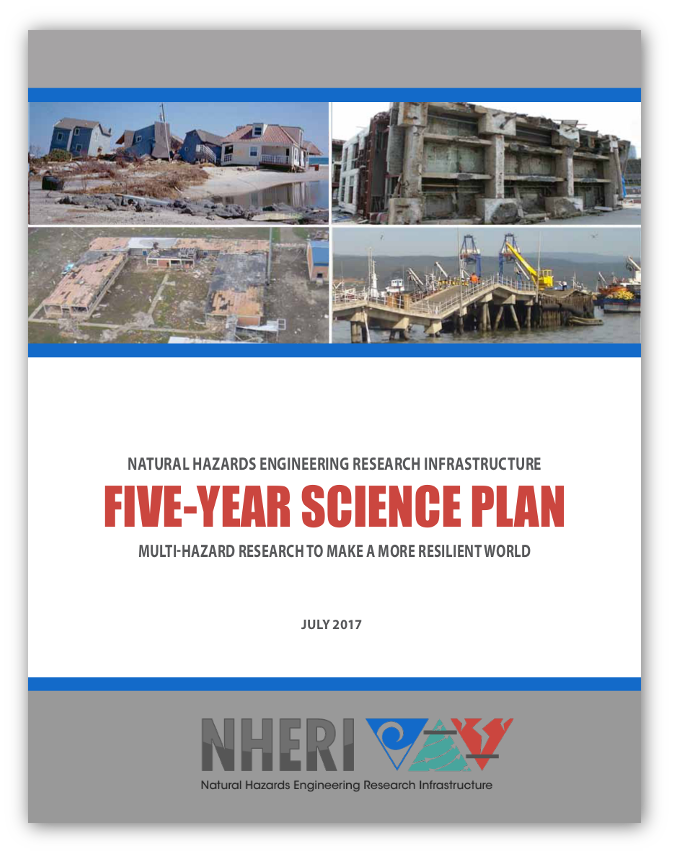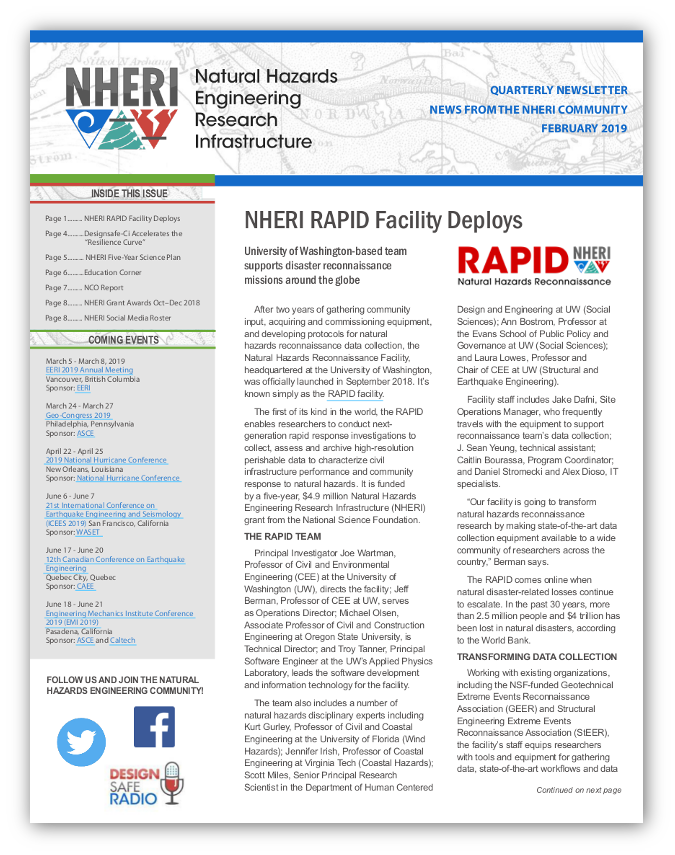Next Steps for NHERI Five-Year Science Plan
Published on February 12, 2019

International Workshop Will Address Research Campaigns, Interdisciplinary Teams and Disruptive Technologies
On March 18-19, 2019, the NSF-funded NHERI network will host a workshop to advance its Five-Year Science Plan.
Contributing experts from traditional and transformative fields will help build a more sustainable civil and social infrastructure.
PLANNING FOR GRAND CHALLENGES
The workshop sessions will investigate and develop research campaigns, foster the formation of interdisciplinary teams, and plan for use of new materials and disruptive technologies in the transformation of traditional research approaches for mitigating the impact of natural hazards on civil infrastructure and society.
The focus will be within the scope of the NSF Natural Hazards Engineering Research Infrastructure, NHERI. The workshop will include a diverse range of researchers from geotechnical, structural, architectural, materials, coastal and construction engineering, as well as social science, bio inspired design, advanced computation, data science, materials science, additive manufacturing, robotics and control theory.
The workshop, which will take place at the Westin Alexandria near NSF headquarters, will provide an opportunity for 85 invited participants to interact with others from academia and practice. Participants include invited experts from the NHERI community, international researchers, non-traditional technology professionals and select young faculty.
PROGRAM HIGHLIGHTS
Opening the workshop, Dr. Timothy Persons, Chief Scientist of the Government Accountability Office, will present a talk entitled Expanding the Vision of Science and Engineering for the Natural Hazards Community. Then Dr. Edward T. Palazzolo of the Army Research Office, will give a presentation on the Science of Team Science Best Practices and Future Directions for Interdisciplinary Teams.
A panel of young professionals will discuss their vision for future hazard mitigation, including disruptive technologies not addressed in the Science Plan. On the afternoon of the first day, six breakouts will feature interactive sessions on non-traditional technologies for hazard mitigation.
The second day will begin with three breakouts focusing on (1) earthquake and geotechnical related hazards, (2) wind storm hazards, and (3) storm surge or tsunami hazards in coastal areas.
The participants in the breakout groups will tackle research themes defined by the Workshop Organizing Committee and develop the elements of a research campaign for the assigned hazard.
The engineers, natural scientists and social scientists will work together to identify how traditional and disruptive technologies can work together to improve the resilience of civil and social infrastructure against natural disasters under the scope of NHERI.
The workshop will conclude with a discussion by Dr. Thomas Denis ORourke, NAE, the Thomas R. Briggs Professor at Cornell University, called Frontiers of Hazard Risk Mitigation.
Following the workshop, a final report will be published and used to advance the NHERI Five-Year Science Plan. Both reports will be published on designsafe-ci.org.
More details on the workshop can be obtained by contacting either: Professor Julio Ramirez at ramirez@purdue.edu, or Professor Billy Edge at b-edge@tamu.edu.






